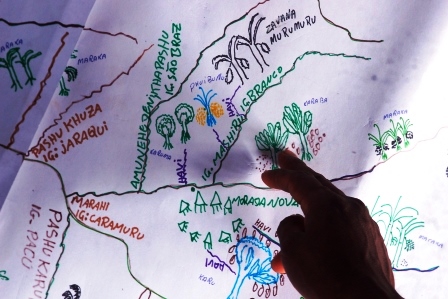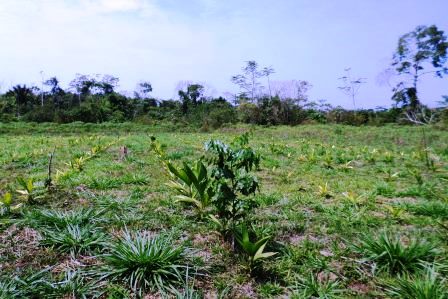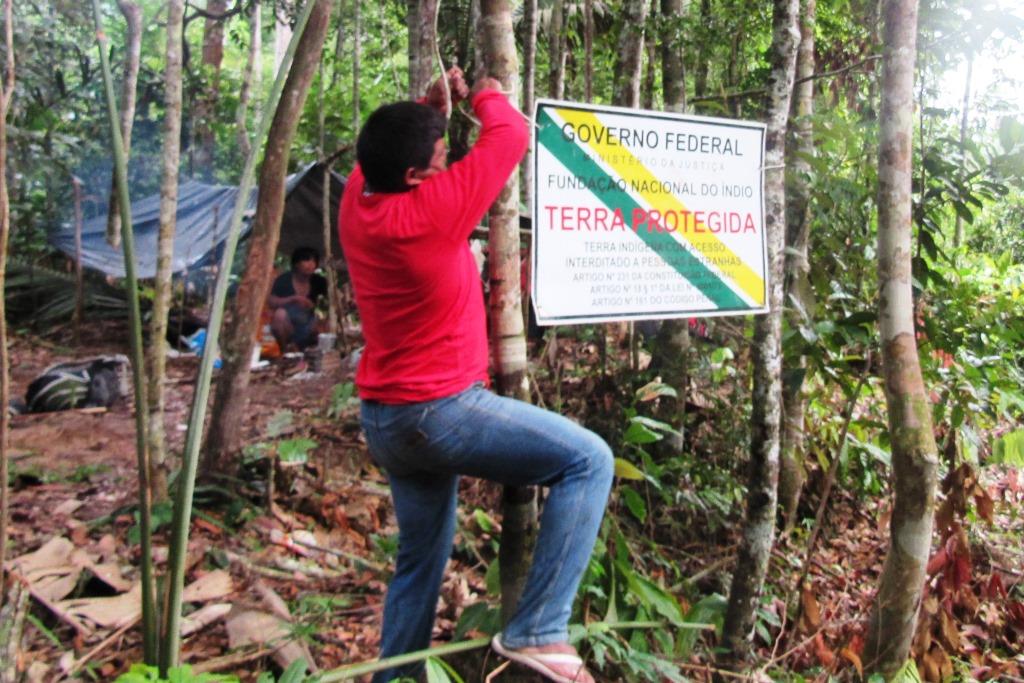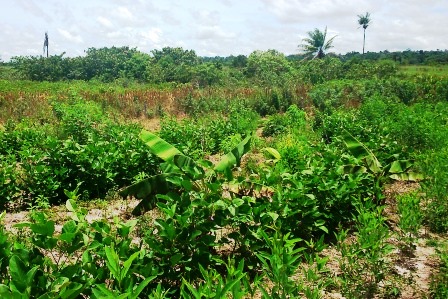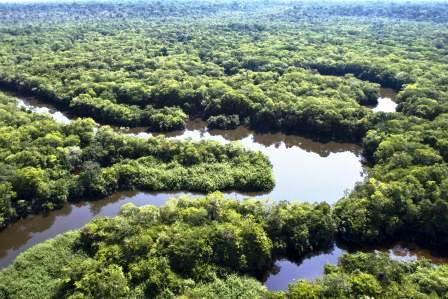RESULT AND IMPACT INDICATORS
The activities of the project contributed to the results related to the component “sustainable production” (1) of the Amazon Fund’s Logical Framework.
Direct effect 1.1: Development of economic activities for the sustainable use of the forest and biodiversity in the Médio Mearim region
The main indicators used to monitor this objective were:
- Area of forest directly managed as a result of the project – hectares (outcome indicator)
Goal: 13,000 | Result achieved: 10,054
- Revenue from the production of nuts of the project’s beneficiaries (outcome indicator)
Goal: undefined | Result achieved: R$ 900,000.00
Although the goal of 13,000 hectares was not fully achieved, the area of directly managed babassu farms was expanded from 6,000 to 10,000 hectares. The annual revenue from the commercialization of babassu nuts obtained by the producers slightly increased from R$ 824,000 (2015) to R$ 900,000 (2019). It should be noted that in 2016 and 2017, the revenue from the commercialization of raw nuts fell due to the reduction in the price of babassu oil. Nevertheless, it can be said that both the objective of expanding the conservation of babassu farms and generating income for the beneficiaries of the project were achieved.
Direct effect 1.2: Increase in the added value of chains of agroforestry and biodiversity products in the Médio Mearim region
The main indicators used to monitor this objective were:
- Revenue from the sale of “Babaçu Livre” soaps (outcome indicator)
Goal: R$ 160,000.00 | Result achieved: R$ 56,000.00
The annual revenue from the sale of soaps increased from R$ 27,000 (2015) to R$ 56,000 (2019), and production increased from 24,000 to 33,000 units. Although the annual revenue achieved almost tripled in relation to the baseline, this result was well below what was planned. It is believed that the partial achievement of the expected result was due to the fact that the investments in the soap production plant took place in the final phase of the project’s implementation, with no time for maturing.
- Revenue from the sale of babassu oil (outcome indicator)
Goal: undefined | Result achieved: R$ 3.9 million
The annual revenue from the sale of babassu oil increased from R$ 1.9 million (2015) to R$ 3.9 million (2019), which shows a clear rise in the annual revenue. With the support of the project, the revenue from babassu oil increased by R$ 2.7 million in the period from 2016 to 2019. This increment is calculated by comparing the annual revenue in a given year with the baseline, being added over the years of the project’s execution and, after consolidated, it represents the increase in revenue generated by the production chain supported.
- Number of individuals who directly benefited from the activities supported by the project (output indicator)
Goal: 1,337 | Result achieved: 1,200
The public directly involved in the sustainable productive activities supported by the project was expanded from 460 (baseline) to 1,200 individuals.
Direct effect 1.3: Expansion of administrative and technical capacities for the development of good practices in the management of non-timber forest products and associations, and implementation of SAFs and cooperatives in the Médio Mearim region
The main indicators used to monitor this objective were:
- Number of young people effectively using knowledge acquired at the EFAs (outcome indicator)
Goal: 50 | Result achieved: 45
- Number of community organizations strengthened (outcome indicator)
Goal: 6 | Result achieved: 6
The project also provided technical assistance and rural or agroforestry extension to approximately 470 sustainable production units, including the more than 70 families who directly benefited from the implementation of SAFs and the approximately 400 families covered by the Sustainable Forest Management Plan developed within the scope of the project.
Direct effect 1.4: Recovery of deforested and degraded areas so they can be used for economic and ecological conservation purposes in the Médio Mearim region
The indicators used to monitor this objective were:
- Area of SAFs implemented (output indicator)
Goal: 280 hectares | Result achieved: 210 hectares
The project allowed the implementation of 120 hectares of family SAFs and 90 hectares of integrated systems in the EFAs supported. Finally, the behavior of the deforestation rate in the municipalities of the state of Maranhão that benefited from the project’s actions was monitored. According to data from the National Institute for Space Research (INPE), the forest area of the municipalities of Lago da Pedra and Lago do Junco had already been 100% deforested prior to the project’s implementation. In the case of the municipality of Bacabal, no new deforestation occurred during the period covered by the project¹.
Institutional and administrative aspects
Assema coordinated the integrated arrangement of subprojects of six partner organizations, involving traditional communities and babassu farmers. Three of them are associations focused on income-generating activities (a women’s association, a cooperative and an association of settled residents), and the other three are EFAs.
The partner organizations were as follows:
- Association of Female Babassu Farmers of Lago do Junco and Lago dos Rodrigues – AMTR;
- Cooperative of Small Babassu Farmers of Lago do Junco – COPPALJ;
- Association Vencer Juntos com Economia Solidária – AVESOL;
- Association of the Agricultural Family School of Lago do Junco – AEFALJ (EFA São Manoel);
- Association of the Family Center for Alternating High School and Vocational Education (Acemep), and
- Association of the Agricultural Family School of Lago da Pedra – Aefalpars (EFA Agostinho Romão da Silva).
Risks and lessons learned
The community agreements of coexistence with babassu involved all of the project’s beneficiary organizations, making them protagonists of the initiative to strengthen family agriculture through the good management of babassu palm, combined with other productive arrangements that contribute to the local economy.
The project involved the beneficiary public at different stages of its implementation. The beneficiaries participated, for example, in the discussions to establish the density of palm trees in areas of pasture and traditional plantations, the practice of extracting leaves, and the management of areas with larger palm trees, resulting in the collective agreement on practices and guidelines for the good management and conservation of babassu, combined with other productive arrangements. The knowledge that has been generated, systematized, and shared through these guidelines may be of use to other stakeholders.
Sustainability of results
It can be said that the project has developed favorably. In terms of results, all the products and services planned were implemented, and all their objectives were achieved.
These results tend to be sustained over time, as the SAFs consolidate themselves as an income option for these populations and the processing of these products continues (production of babassu soap, raw and refined babassu oil, etc.) In fact, it is expected that production will grow in the coming years, since the investments made have improved its quality and expanded the installed capacity.
Finally, the results achieved by the various training programs carried out within the scope of the project have expanded the knowledge of the benefited public on the implementation of SAFs and associations and management of units for the processing of agroecology products, as well as other technical topics. These programs tend to have lasting and extended effects, considering that three of the partner organizations are EFAs.



